8 Cruise Secrets From Former Ship Directors
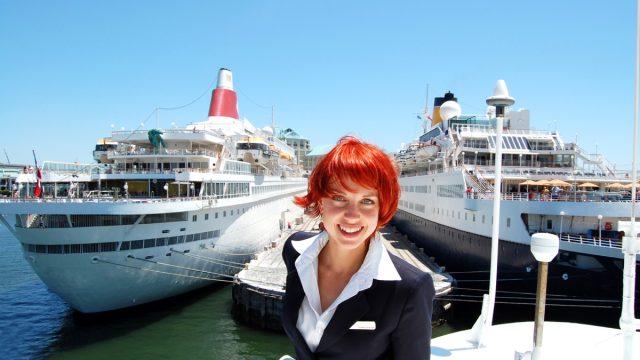
For many travelers hoping to get the most out of their hard-earned vacations, there’s nothing quite like embarking on a cruise. Whether you’re looking to soak up the sun in the tropics or catch a glimpse of glaciers, each voyage allows passengers a relatively convenient and affordable way to experience multiple destinations. But even if you consider yourself an expert at setting sail, there’s still plenty happening onboard and below deck that you likely know nothing about. Read on for some of the best gossip and secrets from former cruise directors and crew.
RELATED: 5 Things You Should Never Bring on a Cruise, Experts Warn.
8 Secrets From Former Cruise Directors
1. What time you sit for your meal can have an effect on quality.
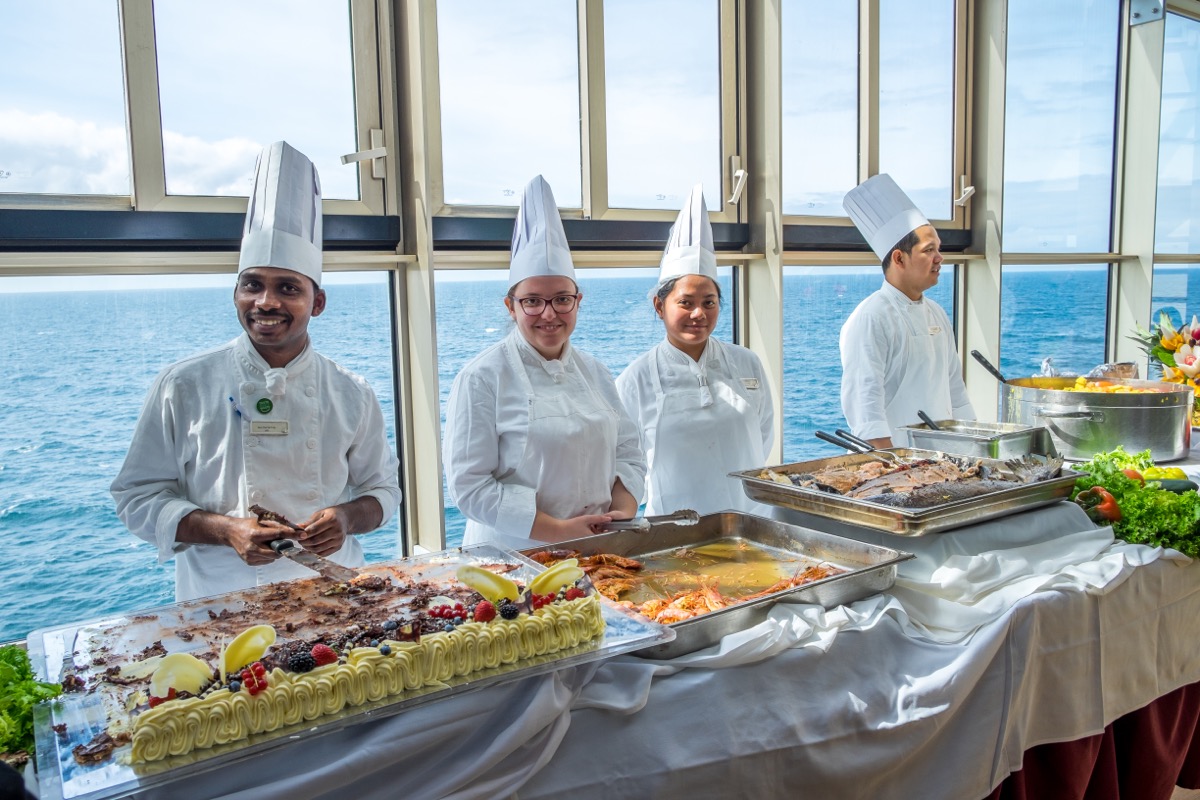
While enjoying yourself at sea, it’s not uncommon to take your time getting to meals. You are on vacation, after all! But according to staff, not being punctual could affect your food’s preparation and what ends up on your plate.
“When going for a meal during one of the seatings, remember the first meals are usually the best,” one anonymous former cruise line employee explained in a Quora forum. “Despite what we are trying to guarantee, the last guest should get the same quality as the first guest. But in reality, during the service, dishes might run out and get replaced with other items.”
“Problems arise when the kitchen runs out of mains like prime rib or ossobuco—items that need roasting and braising for hours. The crew will take shortcuts because telling a guest ‘no’ is not acceptable. So, you end up with an ossobuco from the deep fryer and finished in the microwave. And a slice of prime rib grilled instead of roasted,” they wrote.
2. Expect the wait for food and amenities to be especially long on your first day.
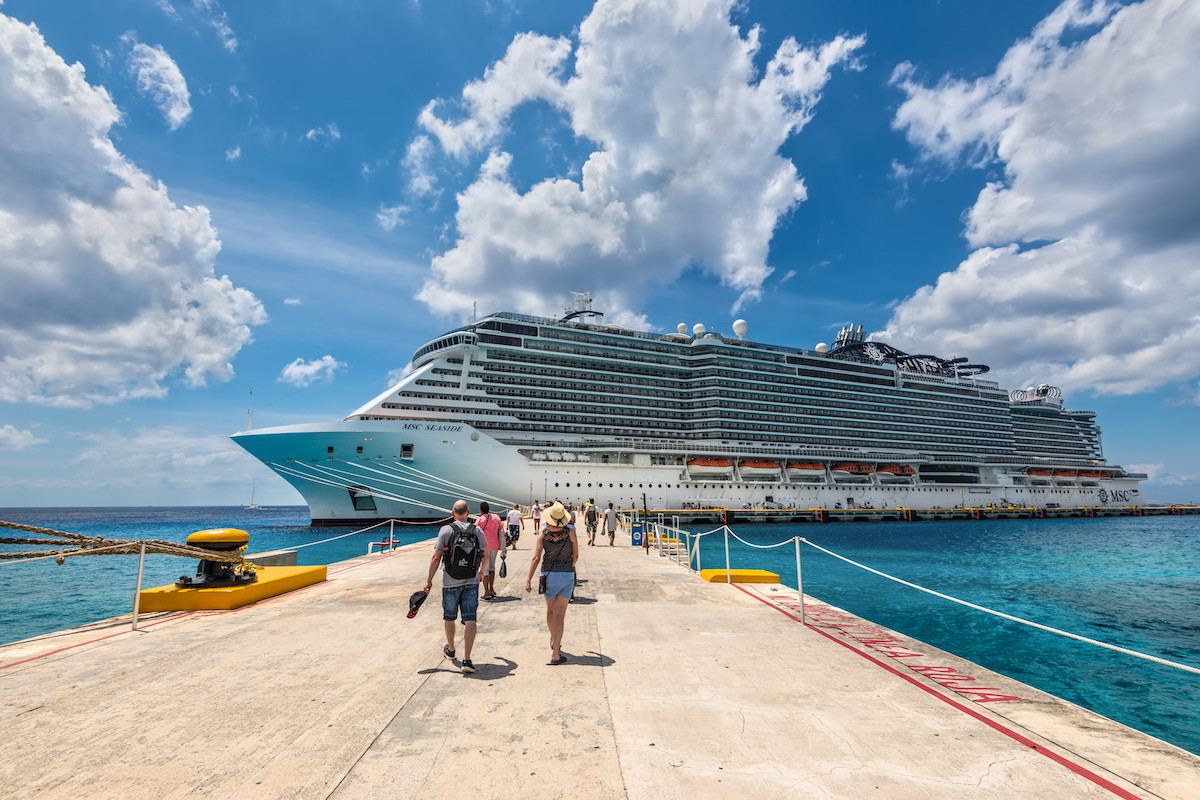
Cruise ships are appropriately described as floating cities, with crew and staff preparing and maintaining the mammoth vessels in ways that guests will likely never even notice. But former employees say that even though the work never stops during a voyage, there is always more on their plates as guests first arrive.
“The main lunch buffet on embarkation day will be incredibly busy and crowded. Expect to wait in line to be seated, especially with a larger group size. If crowds of stressed travelers aren’t your thing, grab a snack and plan on enjoying a big dinner,” Colleen Carswell, a former employee for a major cruise line and travel expert, tells Best Life.
“On turnover days, more crew are needed to clean, greet, and prepare for the next voyage. This means that the ship may need to consolidate the number of available amenities and staff before setting sail, and is one reason why you’ll often find a lot of the food outlets closed,” she explains. “But have faith—there will be plenty of opportunities to stuff yourself silly during your cruise!”
Carswell also says that when you arrive at the terminal can also affect your first day. “Your rooms may not be open when you get on the ship. It depends on the time you board and how large a turnover there was—for both staff and guests,” she says. “Expect to be toting around your carry-on luggage for a bit.”
RELATED: 8 Beautiful Places Where You Can Go Without a Passport.
3. There’s an entire cleanliness protocol to prevent virus spread.
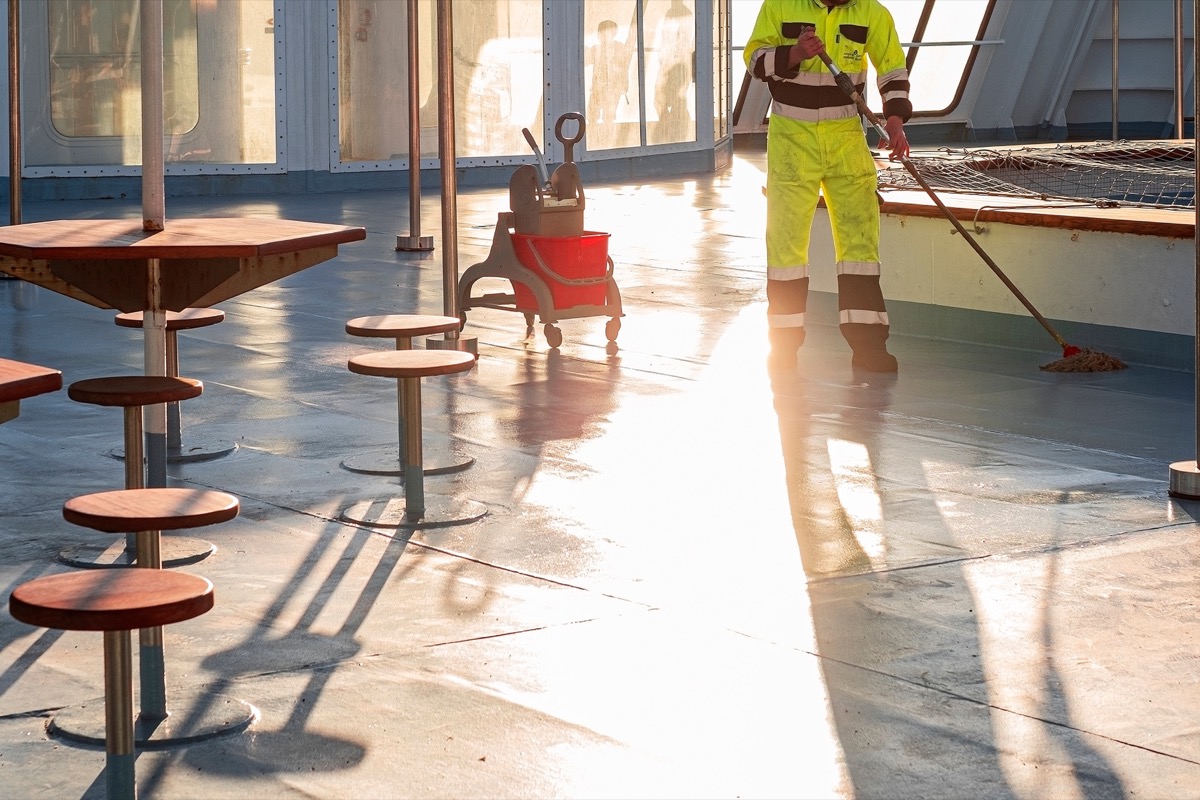
When it comes to clean cruise ships, it’s more than just making sure everything is spotless. It’s also about preventing viruses and making sure everyone is safe.
Carswell explains that cruise staff is trained to be meticulous in their efforts to curb any potential viral outbreaks. “They follow strict protocols for handling and disinfecting, especially during Norovirus outbreak levels, which are categorized as Green, Yellow, and Red.”
Surfaces like railings and elevators receive multiple cleanings a day and the process becomes even more rigorous when new passengers are setting sail.
In terms of overall safety, cruise operations have clever secret codes to discreetly communicate emergency situations to staff without causing unnecessary alarm among guests, Carswell tells Best Life. “These codes, such as Bravo, Alpha, and Charlie, are an integral part of the safety protocols.”
Most of the time, the drills are used to ensure preparedness, as all crew members are vigorously trained and ready to respond quickly and calmly in cases of emergency. Carswell notes that cruise ships are one of the safest places during a crisis thanks to coordinated and practiced responses.
4. There’s a place on the ship to keep passengers who die while on a voyage.

Everything that can happen in everyday life on land can still happen on a ship—including death. In fact, it’s such an expected part of operations that cruise companies have entire rooms dedicated to storing those who’ve passed away until they make it to the next port.
“Each ship has a morgue as well as body bags,” says Michelle Endo, a former cruise ship employee of three years and author of the travel blog Wander Eat Write. “Many elderly passengers cruise knowing they’re at the end of their life and choose to live on cruise ships as it’s cheaper than living on land. This does, however, mean that onboard deaths occur and ships need to be prepared.”
RELATED: People Are Turning Away From Disney Parks: “Absolutely Dead” on Former Peak Days.
5. The crew has “an entire city” separate from passengers.
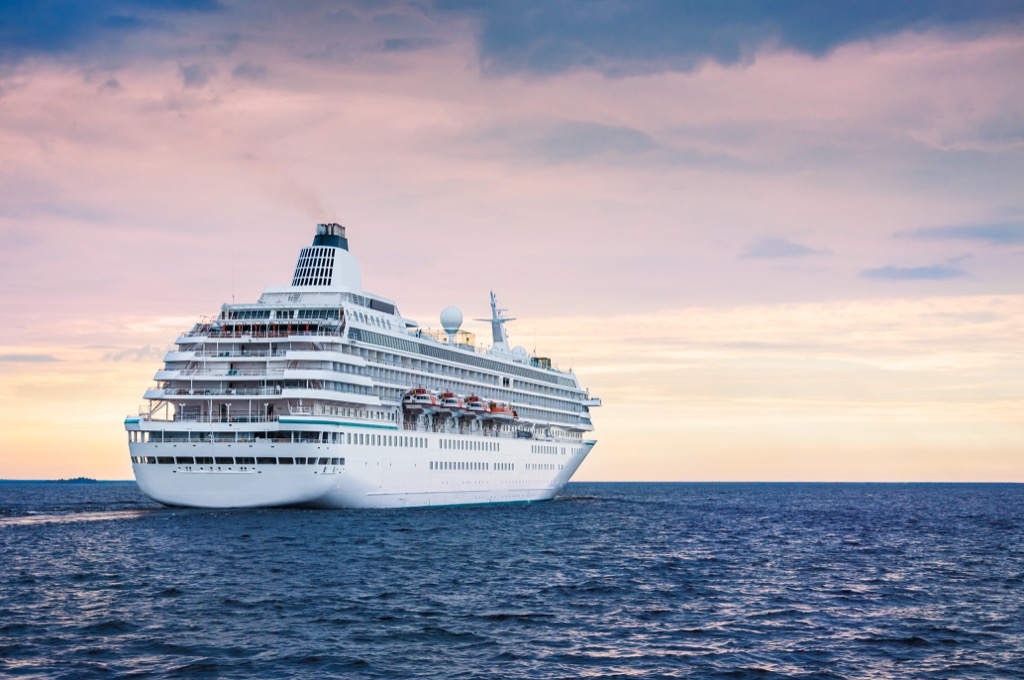
For as many passengers as there are on any given cruise, there also needs to be enough crew and staff to ensure smooth sailing. And while you’ll likely spend your entire vacation interacting with them, the employees working to keep the ship functioning spend most of their time in a designated area when they’re off the clock.
“The crew area is an entire city that passengers never see. Depending on the ship, crew-specific amenities can include everything from separate gyms, messes (a.k.a cafeterias), bars, and clubs,” shares Endo. “Most crew members aren’t eating the same food as guests, either. We have our own separate dining areas, and the food tends to be much simpler.”
And there’s another major distinction between passengers and employees when it comes to drinks. “While guests pay upwards of $12 to $14 for one alcoholic beverage, the crew bar serves at a fraction of this cost, sometimes as low as $3,” Carswell explains.
Most often, you’ll never see your servers, bartenders, and entertainers out of uniform because of company policy.
“The majority of the crew are not allowed to dine in guest areas, ride guest elevators, or partake in onboard entertainment,” Carswell says. “This is reserved for the select few—typically officers or certain departments or positions. And no staff is ever allowed inside a guest room with the door closed—for the safety of both the crew member and guest.”
6. But they also have some unique living challenges.
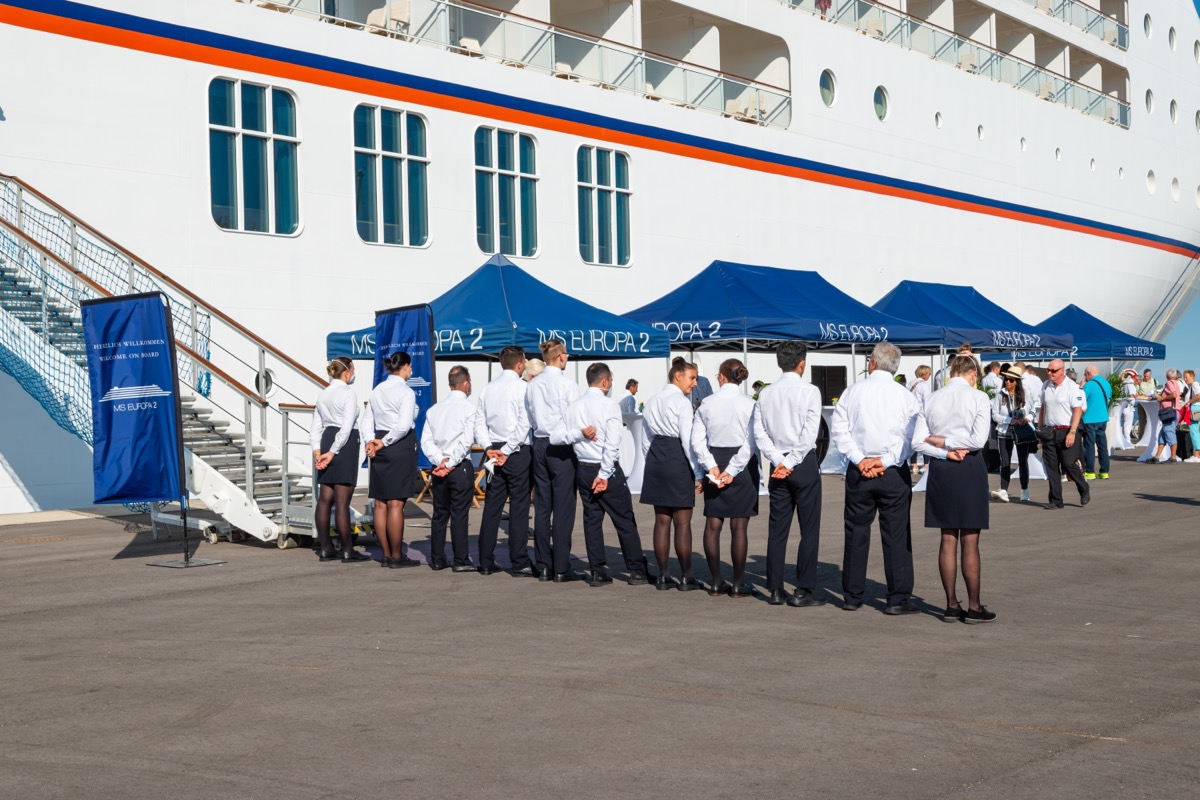
As expected, staff quarters are a lot smaller than guest rooms, but crew probably have more belongings with them than travelers.
“When embarking on this journey, staff must pack for extended periods away from home, often six to eight months at a time,” says Carswell. She explains that they often share space with another person to maximize space.
These tight quarters also mean that crew members become immersed in ship culture and thrive on each other’s company.
“Living and working together day in and day out, fast friendships are formed that span cultures and continents,” says Carswell. Oftentimes, the crew will have their own parties, themed dinners, or other fun activities while onboard.
For more travel secrets delivered straight to your inbox, sign up for our daily newsletter.
7. You’re probably overpaying for WiFi.
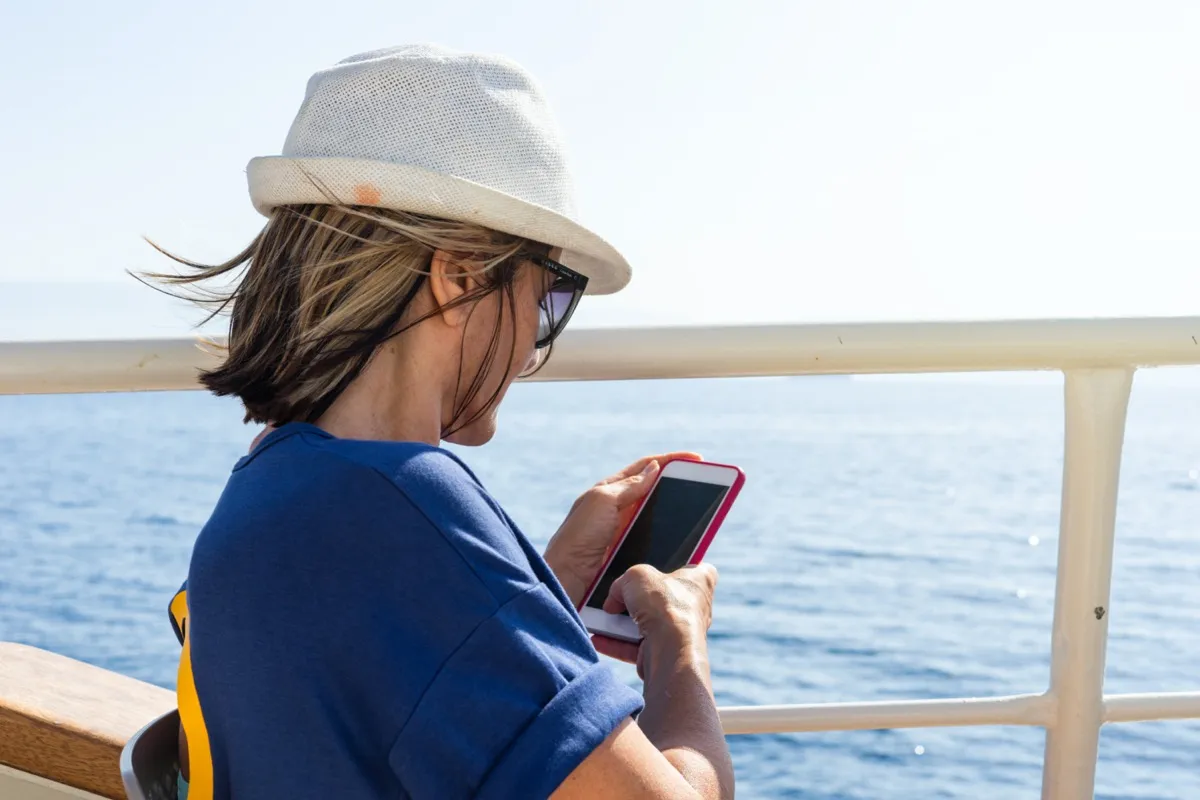
Even if you’re going on vacation to disconnect and unwind, it might still be necessary to check your email or post social media updates while on your voyage. But according to employees, there’s no reason to blow out your budget on a few gigabytes.
“Internet is crazy expensive for guests—even for the crew, it’s already expensive—but paying passengers are charged more than triple for this service. Try to avoid it at all times and go ashore to use it. Many cruise terminals nowadays have free WiFi,” the anonymous former cruise line employee explains. “If you do want to use the internet, try and buy an unlimited package. In the end, it will be cheaper than individual packages.”
8. The crew on your ship are working very hard—and often for long stretches of time.
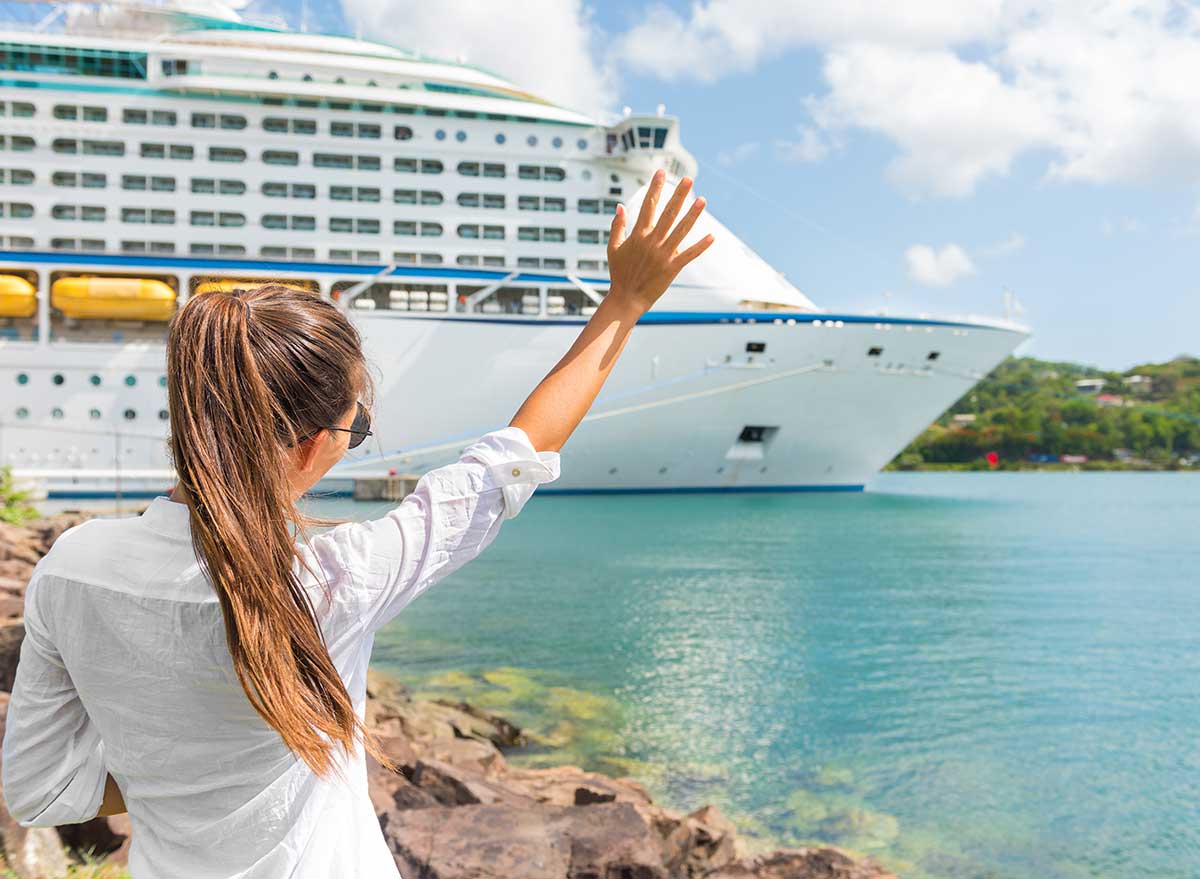
It may not come as a surprise that many people decide to work on a cruise ship because of the excitement it can involve, especially being able to wake up in a new port most mornings and see the world while getting paid. And besides a salary, some see it as a way to actually save money.
“On ships, you live where you work,” says Endo. “Unlike life on land, there is no rent to be paid or monthly utility bills that need to be taken care of. All basic living expenses are covered at sea for crew members: accommodation, water, electricity, and food. And while it varies by company and possibly by job, ships generally pay for crew flights.”
But ultimately, many former employees agree that work is still work—and in the case of those in the cruise industry, this can involve long posts with minimal downtime.
“The person who is serving, greeting, or entertaining you could have just joined the ship that day or may have been sailing on the ship for seven months,” Carswell explains. “On average, crew get one to three months of vacation between contracts. The duration of the contract and vacation most often comes down to position. Most crew do not have a choice on their assigned ship and can be moved mid-contract to another ship if needed. There is no downtime when joining the ship. Often, you drop your bags, change, and immediately start your shift.”
And while it’s always important to make staff feel respected and appreciated, there is something else you can do to show gratitude.
“If you receive a comment card at the end of your stay, take a moment to fill it out and mention by name those who went above and beyond,” Carswell suggests. “Many cruise lines have reward and recognition programs for crew members, and a name-mention can go a long way. Crew have to be ‘on’ at all times for six, seven, or even 10 months at a time, including on holidays. Something as simple as commending them by name in a comment card can have a big impact.”